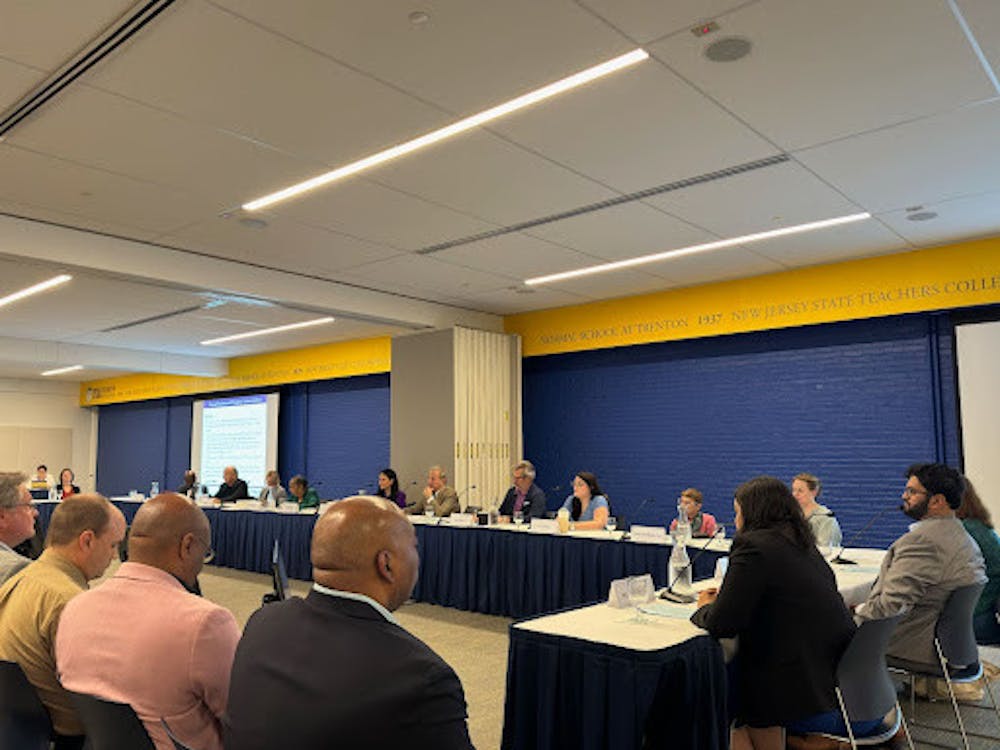By Matthew Kaufman
Editor-in-Chief
Interim President Michael Bernstein proposed a 4% increase to tuition and fees and a 2.4% room and board increase at the College’s annual tuition hearing, held during the May 2 Board of Trustees meeting. The price increases still have to be finalized at the July meeting.
“Obviously one would love not to have to increase tuition,” Bernstein said during the presentation, “but given the challenges we face, we think this is the best we can do while maintaining affordability for our students.”
If the proposed pricing is approved, annual in-state tuition would increase by $588 to $15,294, room and board by $336 to $14,267, and fees by $160 to $4,159. Out-of-state tuition would increase by $1,120 to $29,131. Out-of-state students pay the same rate as in-state students for housing and fees.
With these additions, total cost of attendance per year for on-campus, in-state students would rise to $33,720, which includes tuition, room and board, and fees, according to a slide presented at the meeting. The total for out-of-state students would rise to $47,267.
As of FY2024, according to Northjersey.com, the College is the second most expensive public school in the state, behind New Jersey Institute of Technology. Kean University is the most affordable at $13,426 per year.
In framing the recommendations, Bernstein noted the “price sensitivity” of the higher education market, explaining that schools can only raise prices by so much before prospective students seek out cheaper options. Last year, the Board of Trustees approved a similar 4% increase in tuition and fees.
“The market is showing itself to be more than willing to trade off quality and reputation with respect to price — that's one issue,” the interim president said. “The other issue is…the whole value proposition of undergraduate education is being questioned — whether fairly or not. That's a reality in the marketplace.”
In an interview with The Signal last fall, Interim Treasurer Richard Schweigert acknowledged the challenges the administration has faced surrounding tuition increases due to this price sensitivity.
“I think we're all aware that the price point is probably at a point that you all aren't enjoying and probably haven't been enjoying for a while,” Schweigert said, “and so that's the challenge and dilemma.”
Former Treasurer Lloyd Ricketts expressed a similar sentiment to The Signal in 2022, saying, “The College is not trying to balance the budget on the backs of students when it comes to running the operation.”
The need for tuition increases has risen in recent decades as state funding for the College has not increased substantially. In FY2003, for example, the state paid for about 49% of the College’s education and general budget, according to a presentation made at last year’s budget hearing. In FY2023, however, the state paid for only 27% of the College’s budget.
Bernstein reported to the trustees that even though New Jersey Gov. Phil Murphy’s proposed budget for FY2025 contains a $66 million cut to overall higher education funding, the College was one of only two public colleges in the state that would not receive a decrease in appropriations, with state support remaining at about $32 million.
On May 9, Bernstein released the final recommendations submitted by LIONS plan working groups, the goal of which is to stabilize the College’s budget. In sending the recommendations, Bernstein also said that if the proposals did not fully balance the budget for FY2025, additional cuts would have to be made.
“As I’ve said since the beginning of this effort, the Board of Trustees expects us to achieve a balanced budget in FY25 without relying on reserves,” the interim president wrote. “Should the LIONS Action Plan fall short of our budget target, we will utilize additional ‘balancing options’ discussed in my recent budget-update meetings with the Trustees, the Staff Senate, the Faculty Senate and Student Government.”
These “balancing options” could include further asset renewal reduction, use of discretionary funding, additional reduction of adjunct faculty and additional tuition increases. Bernstein said, however, that the administration “would like to avoid” additional tuition increases, saying he included it in the list only as “a matter for education.”
The interim leader is hopeful, however, that the revenue generated and costs saved by the LIONS plan will help make the College’s budget sustainable for the coming years.
“There’s a light at the end of the tunnel,” Bernstein said, “and it’s not an oncoming train.”







